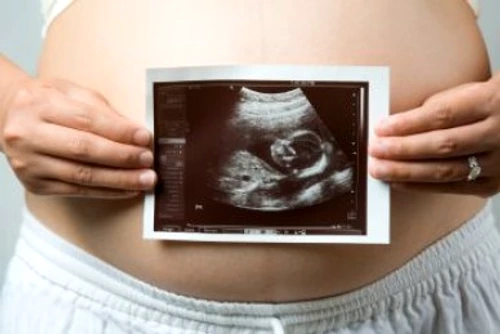
Before planning a pregnancy, it is recommended to carry out medical tests that highlight the possible occurrence of some problems. One of these is the stopping of the pregnancy from progressing, also called delayed abortion. “Pregnancy arrested in evolution or retained abortion represents the retention of an egg or fetus whose development has been stopped, development no longer than three months of gestation (over three months is considered intrauterine death of the fetus). Retention can last four to eight weeks or even longer. The pregnancy initially evolves normally, after which the subjective signs of pregnancy disappear, the uterus no longer increases in size, they can even involute”, says Dr. Ciprian Pop-Began, assistant professor of obstetrics-gynecology, from the “Elias” University Emergency Hospital ” from Bucharest.
Slight bleeding may occur
Most of the time, the stopped pregnancy does not cause symptoms. “In other cases, a little vaginal bleeding may occur, with the blood usually darker in color. Also, the specific signs of pregnancy, such as nausea and vomiting, can disappear”, says doctor Ştefania Dobre, primary obstetrician-gynecology doctor at the City Hospital in Balş, Olt county.
On ultrasound, the signs of fetal viability are no longer observed, and hormonal secretions change, being able to return to the level of non-pregnancy.
The most involved causes associated with stopping the progress of pregnancy are genetic, especially if this complication occurs in the first 12 weeks. It is about chromosomal anomalies, either already present in one of the parents, or newly appearing, which are incompatible with the survival of the fetus. If the pregnancy stops developing after 12 weeks of gestation, other causes are usually involved, such as hormonal imbalances, various infections of the genital tract and uterine diseases (including fibroids). Another important cause that leads to delayed abortion is immunological. Thus, pregnant women carrying anticardiolipin antibodies (ACA) are more exposed. Only about 15 percent of women carrying these antibodies will be able to develop a pregnancy to term. Also, the presence of autoimmune diseases can lead to the arrest of pregnancy. “Systemic lupus erythematosus is frequently associated with spontaneous abortions, either in the first trimester of pregnancy, or in the second trimester, and with intrauterine death of the fetus,” says doctor Ciprian Pop-Began.
And unbalanced and nutrient-poor diet, smoking, alcohol consumption and long exposure to pollutants (anesthetic gases, formaldehyde, lead, ethylene oxide, etc.) are other factors involved in stopping the evolution of pregnancy. There are also numerous situations in which the cause cannot be identified.
It is necessary to trigger the abortion
In almost 30 percent of cases, pregnancies stopped in development lead to spontaneous abortion. If the natural expulsion does not occur, it is necessary to induce it, most of the time through infusions or with the help of drugs, after which a curettage is done. If the abortion is not triggered by these methods, a cesarean section is resorted to.
What analyzes are required
In the case of repeated stopping of the pregnancy, additional tests are needed to find the cause. In addition to the analyzes required for various infections (Ureaplasma urealyticum, Mycoplasma hominis, Chlamydia trachomatis, Toxoplasma gondi), genetic and immunological tests must also be performed. Thus, it is also necessary to dose antiphospholipid antibodies (such as anticardiolipin ones and lupus anticoagulant). It is possible that the antiphospholipid syndrome is the cause of the stopped pregnancy, a condition associated with the predisposition to arterial or venous thrombosis and repeated pregnancy losses.






































